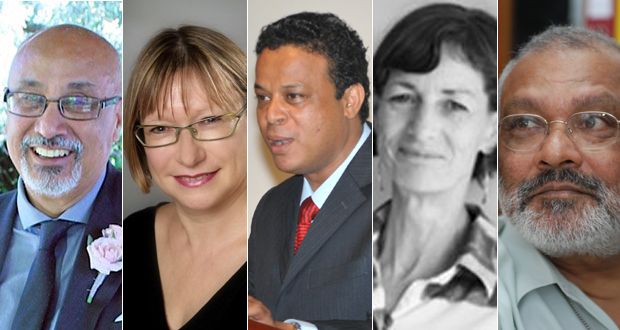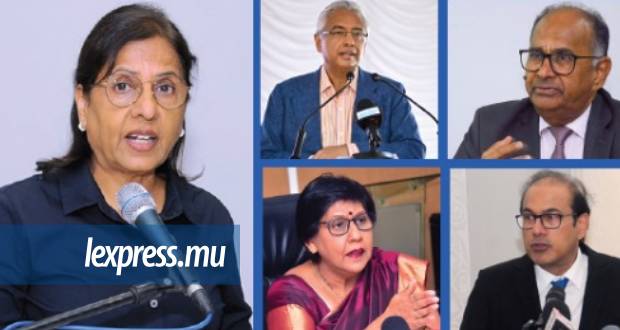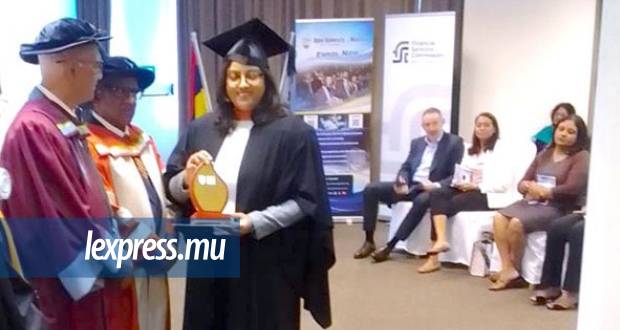Publicité
This Week's Focus-An overture at the close of the 10th Festival Internasional Kreol Créolité, pushing at the myth of boundaries
Par
Partager cet article
This Week's Focus-An overture at the close of the 10th Festival Internasional Kreol Créolité, pushing at the myth of boundaries

The tenth edition of Festival Internasional Kreol (FIK) closed yesterday with an overture onto avenues yet to be explored on the theme of culture and national identity, this time away from navel-gazing but taking on board global dimensions. Ten years on it is time to widen the debate.
The historian Megan Vaughan, in her book Creating the Creole Island. Slavery in eighteenth-century Mauritius, defines Creole thus: ‘by “Creole” I simply mean that the island, without natives, has always been the product of multiple influences, multiple sources, which to differing degrees merge, take root, and “naturalize” on this new soil.’ This contact zone is an ambiguous place. On one hand because we are all from elsewhere we have a sense that anything ‘authentic’, legitimate, worth talking about, meaningful can only be from ancestral or colonial lands. And yet this Creole contact zone, in the sense given to it by Vaughan, is a potent one of creation and re-creation. Descendants of slaves and later indentured labourers created a new language and reinvented traditions and customs thereby already achieving an identity not prescribed purely by the colonial masters. All that we have created that is new, unique and that often powerfully draws from multiple sources constitutes a Mauritian Créolité.
The language dimension: measuring the distance from colonial times to now
Creole languages, which often have a history of colonization, have been the most stigmatised of the world’s languages. Part of this stigma is the result of 19th Century views on Creoles which were shaped by the same racism that underpinned slavery. To start with, it was unthinkable that words that came out of the mouth of less-than-human beings destined to work for free could constitute a language.
More recently when Creoles started to be acknowledged, the contradictory classifications and definitions as French or African were no less political. This subjective debate is ultimately to do with who will be, and denied to be, creator or ‘master’. I abide by the theory that in situations of language contact, the agency of human beings needing to communicate creates an autonomous language system which draws from multiple roots.
The journey covered from the birth of Mauritian Creole to the empowerment of young Mauritian children through the use of their mother tongue at school is a big achievement. We are moving away from the discourse that the use of Creole constitutes a handicap to considering the facts objective. The reality is that an alarming number of children leave primary schools with almost no literacy skills. In the long term we will be able to assess the impact of the introduction of Creole in schools. But so far so good if, as was shared during the opening Symposium of the FIK, “dan klas kreol zanfan pa res trankil. Seki li viv dan so lakaz li kapav rakont li dan klas”. This achievement stands tall on the shoulders of the writers, pedagogues and researchers who have paved the way since independence.
Mauritian Creole stands out as a unique case-study
Paul Commarmond reminded us that we are just 1 of 26 million Creole speakers in the world. But Mauritian Creole makes a unique case study among the 70 odd Pidgins and Creoles spoken throughout the world, from Afrikaans to Zamboangueno. It is, to a large extent, the recognition of Mauritian Creole as a literary language both within and outside Mauritius that has established its status as the de facto national language. As a contrast to Beach-la- Mar, for example, the Creole of Vanuata, which is the de jure national language but with very little written in it, in Mauritius we havea wealth of creative writing in the vernacular. Chantal Zabus’s point that ‘writers will often prove to be reliable precursors of government implementation’ certainly holds true for Mauritius. We have seen a bottom-up sociolinguistic movement whereby the change triggered by individuals got later ratified by government.
There are interesting parallels between the state of the Englishlanguage in the second half of the 16th Century and that of Mauritian Creole. Until that point English had been seen as inferior to French, Spanish and Italian and most men of ideas and science thought it was a language that lacked refinement and was therefore not worthy of being a medium of written communication. But the second half of the century saw a huge output of literatureand translation which resulted into a phenomenal expansion of the vocabulary and various written registers. This was not a ‘natural’ development, it was deliberate and orchestrated and creative writers and translators played a leading role here. This radical shake-up of Elizabethan English took place, not least, under Shakespeare’s pen. No wonder Shakespeare will come to play a central role in Dev Virahsawmy’s endeavour to build a Mauritian Creole literary canon.
The Catalysts
A number of people and organisations have played a catalytic role, Ledikasion pu travayer, Arnaud Carpooran among others. Dev Virahsawmy deserves special mention for almost 50 years of commitment to the cause of Morisien as an empowered and empowering tool of communication. Writing in Creole has been for him a political project, that of nation-building around a national language in need of recognition and capacity building. Literature achieves both in terms of giving status to a language and engineering it. His creative writing across the genres of feminist literature, futuristic science fiction, philosophy, linguistics, spirituality among others, has helped to expand the vocabulary and grammar of Creole through new words that he has created and weaved into the language.
Translating Shakespeare has also helped to defeat the argument that Creole cannot express abstract ideas or transcend a local reality. Beyond the national language project, his translation work from Shakespeare, as well as other world literary giants, aims to build bridges across literary cultures. He thus creates a two-way flow and a more egalitarian relationship between older world literatures and a nascent Mauritian literature.
Literature in Creole has entered the realm of world literature Toufann in London
Toufann, Virahsawmy’s play in Creole with a title borrowed from Hindi, is a playful adaptation of The Tempest. Calibann is no longer what the West invented as the ‘savage’ but an intelligent, attractive young ‘métis’. Being a brilliant IT technician he is the only one capable of carrying on Prospero’s scientific work and he will eventually reign as king and will be married to Prospero’s daughter. If a number of cheeky transactions are already at play here Toufann will also be translated into English by Michael and Nisha Walling and performed in London. At one of the performances of Toufann at the Africa Centre in 1999, which I was lucky to attend, we were shipping back to the metropolitan centre, not merely Shakespeare in Creole translated into English, but a Creolised Shakespeare whereby the bard is recycled to serve multiple purposes.
Literature in Creole has entered the realm of world literature. In using Shakespeare to validate the identity of Mauritian Creole, Virahsawmy’s translations in turn, validate the identity of the people who speak it.
Conclusion
This Créolité, or method of weaving together different elements into a new picture, whereby contact with the other is welcome and enriching rather than threatening, does not only manifest in the language that we have created. It is not just a weaving that takes place through literature either. It is, in fact, a reflection of what we live on a daily basis.
Endnote
To mark the commemoration of the 400th anniversary of the death of Shakespeare, the 2 Volume Cambridge Guide to the Worlds of Shakespeare will be launchedin January 2016. My chapter ‘From Shakespeare in Creole to a Creolised Shakespeare’ makes a Mauritian contribution to this collection.
A Créolité which allows us to come to terms with our history
It was felt that a celebration of our Créolité cannot bypass a coming to terms with our history. We are far from the days where we read history as ‘nos ancêtres les Gaulois’ but what do our children know of our history? There are poignant lessons from our own history that need to be voiced out. For example, the first act of slave agency on the 18th of June 1695 saw two women and two men, Anna of Bengal, Espérance, Aaron of Amboina and Paul from Batavia, set fire to the Dutch Fort Frederick Hendryck. It was a complex and deliberate coup, planned for months which would shake the colonial establishment to the core instilling fear in its midst. Our children could do with this page of history when male and female heroes from diverse continents, cultures and life experiences, speaking different ‘langues de départ’ but communicating in a common language stood together as one to fight for the one thing ever worth fighting for.
Publicité
Les plus récents






